|
From Wikipedia: " In Hindu theology, Arishadvarga or Shadripu/Shada Ripu (Sanskrit: षड्रिपु meaning the six enemies) are the six enemies of the mind, which are: kama (lust/desire), krodha (anger), lobha (greed), Mada (pride/arrogance), moha (attachment), and matsarya (jealousy); the negative characteristics of which prevent man from attaining moksha or salvation. "
The order here is important and is typically conserved. These failures of the mind in fact can be said to define our experience in the Kali Yuga. Ayurveda teaches that the experience of digestion of all things, including food, thoughts, and experiences, relies on the transformative power (the Agni) of our own digestive system. Understanding and stoking our digestive capacity thus leads to nothing less than true freedom, i.e. emotional freedom, from the bindings inherent in what we take in. I propose here that the shad ripus are themselves related to each of the six Ayurvedic tastes and to each of the six digestive organs. Sub-components of this idea were presented to me in Ayurvedic school but not the whole system. Moreover, the conserved order of the shad ripus match the order at which the digestive organs assimilate food. 1. lust :: stomach :: sweet taste = earth + water 2. anger, to be bilious :: liver :: sour taste = earth + fire 3. greed :: pancreas :: salty = water and fire 4. pride/arrogance, to have gall :: gallbladder :: pungent = fire and air 5. attachment, the feeling of loss of which is fear :: kidneys :: bitter = air and space 6. jealousy :: spleen :: astringent = air and earth Again from Wikipedia: " According to Hindu belief, without experiencing these Shadripu at the fullest a person cannot understand the meaning of the Love which is the soul.... A human who controls all these Shadripus even at some of the extent later enjoys the power of peace. " You are truly what you can digest. Take care of your digestive system. It takes care not only of your physical body which comes from your food but also your mental body which is built on digesting all that you take in and which consequently creates your reality.
0 Comments
Here is an easy way to make a wonderful, nutritious, and delicious Ayurvedic meal in under 10 minutes start to finish at about 50 cents per serving. It can serve as a breakfast, snack, or light lunch or dinner.
Ingredients list:
Step 1 Soak poha in a pot or bowl of hot water for five or so minutes. Transfer to colander to drain. Step 2 Start tarka. (Tarka is a term for spices in hot ghee. It is believed that the hot ghee emancipates the higher properties of the spices.) Put ghee in skillet. Put on medium heat until melted. Add mustard seeds. Reduce heat to medium-low. Listen for popping sounds of the seeds. A delightful flowery fragrance should be released. Reduce heat to low. Only now, add curry leaves and stir. Add chili powder, turmeric, and salt. Stir. Step 3 Add peanuts and stir. Let sit for 2 minutes. Stir again. Step 4 Add drained poha and stir, evenly distributing the color. Optionally, pomegranate seeds can be added. Serve. Step 5 Add squeezed lime to plated poha. That's it! Ayurvedic Six Tastes:
|
ARTICLESAuthorRenay Oshop - teacher, searcher, researcher, immerser, rejoicer, enjoying the interstices between Twitter, Facebook, and journals. Categories
All
Archives
September 2023
|
© 2008–2024 Renay Oshop AyurAstro®



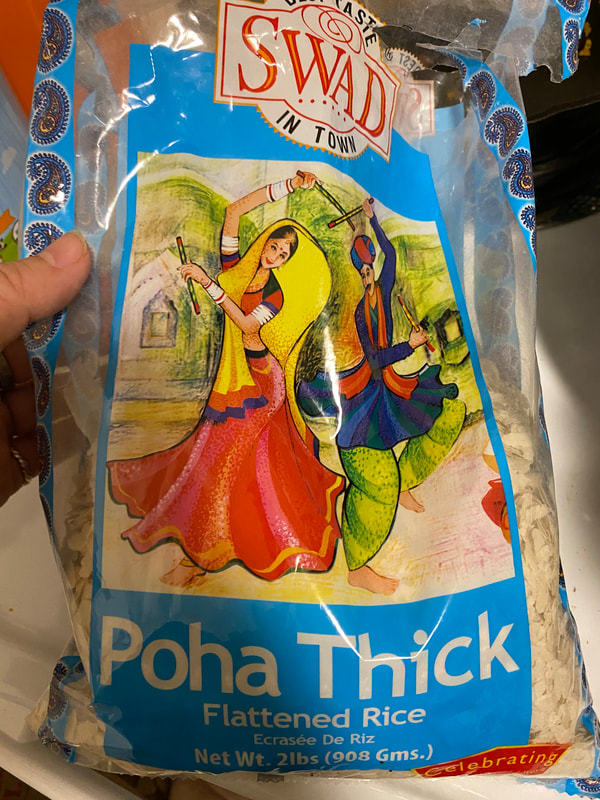

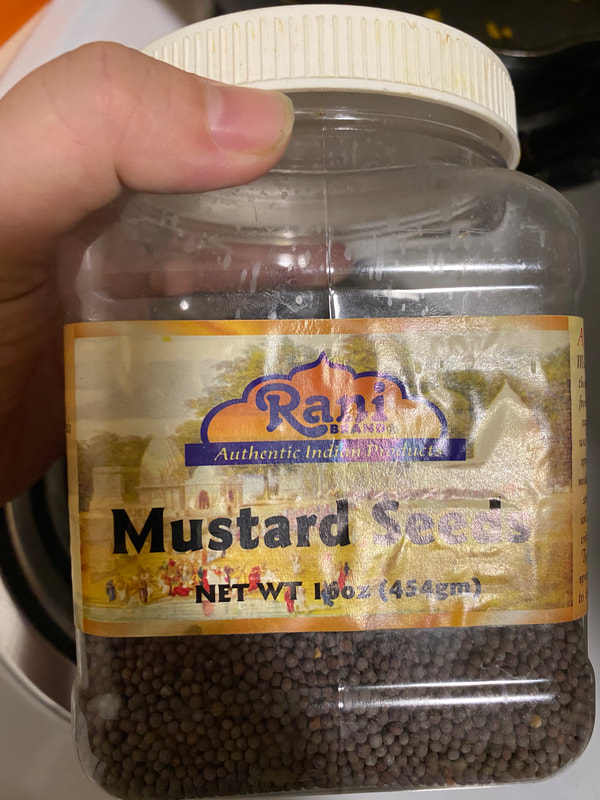
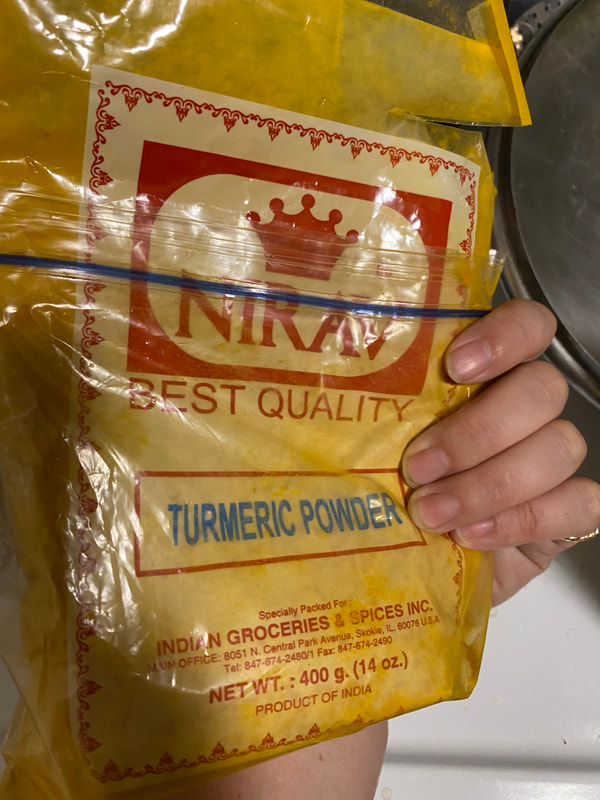
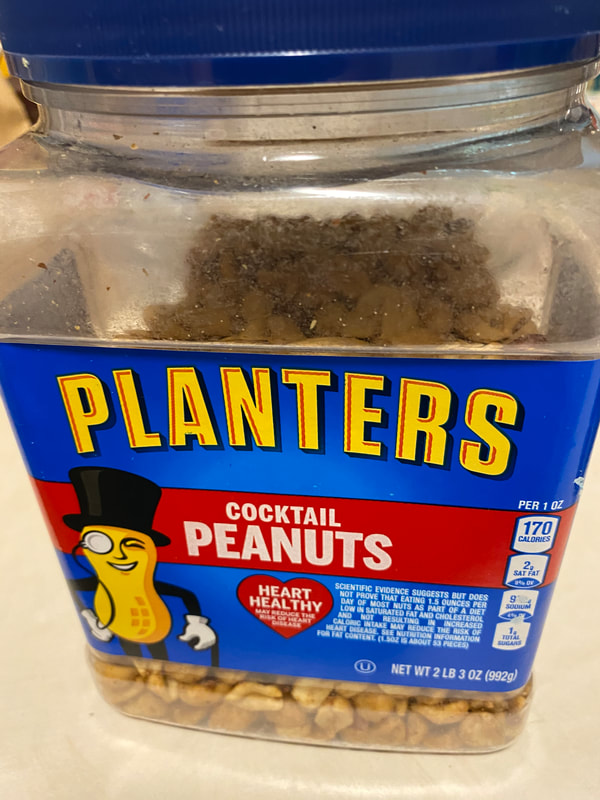
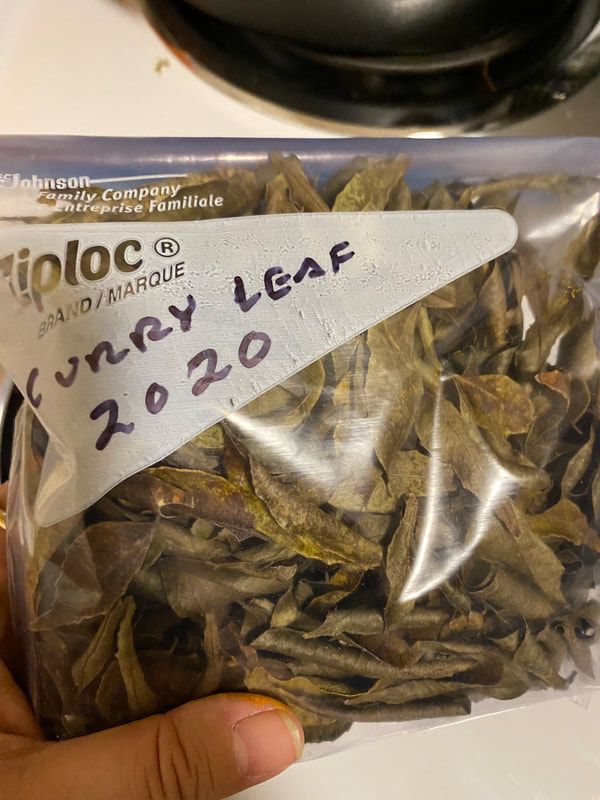
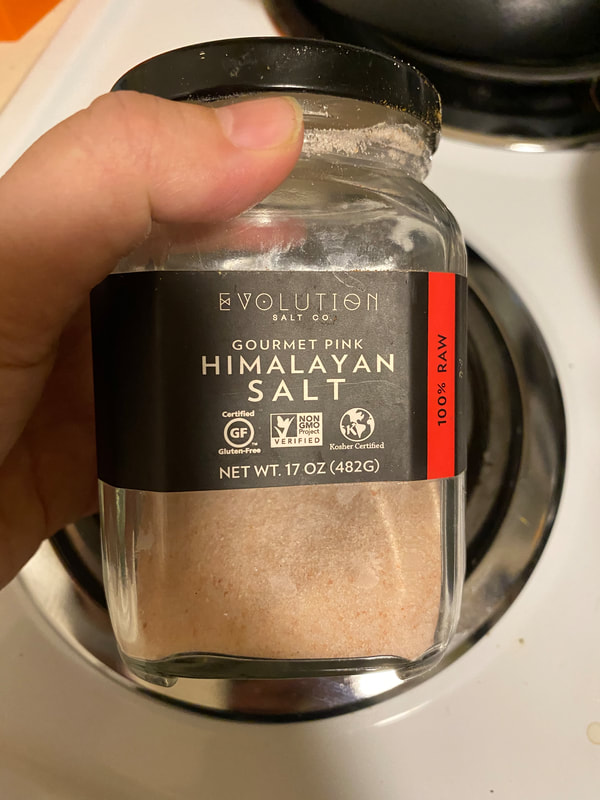
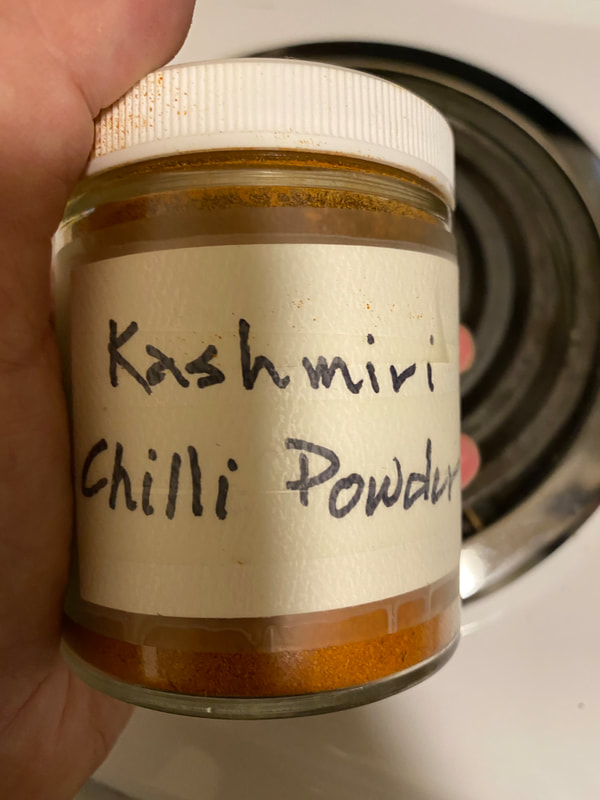

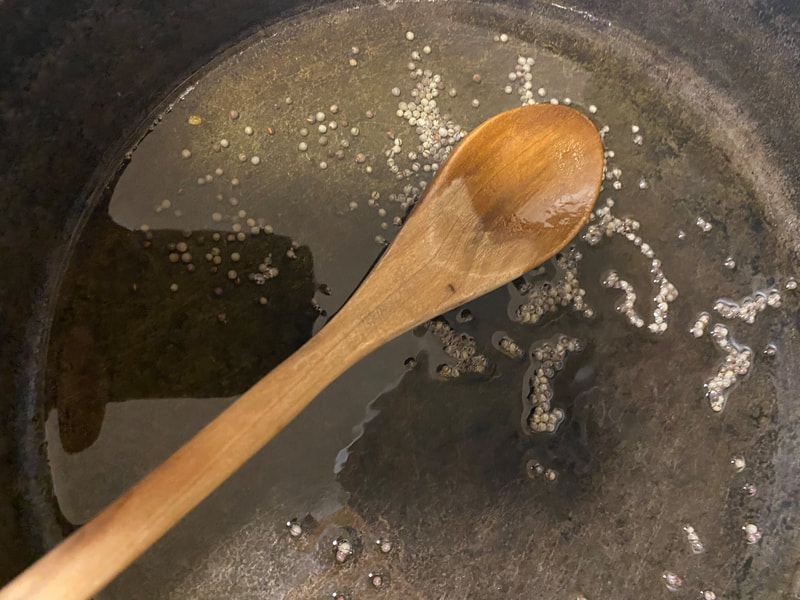
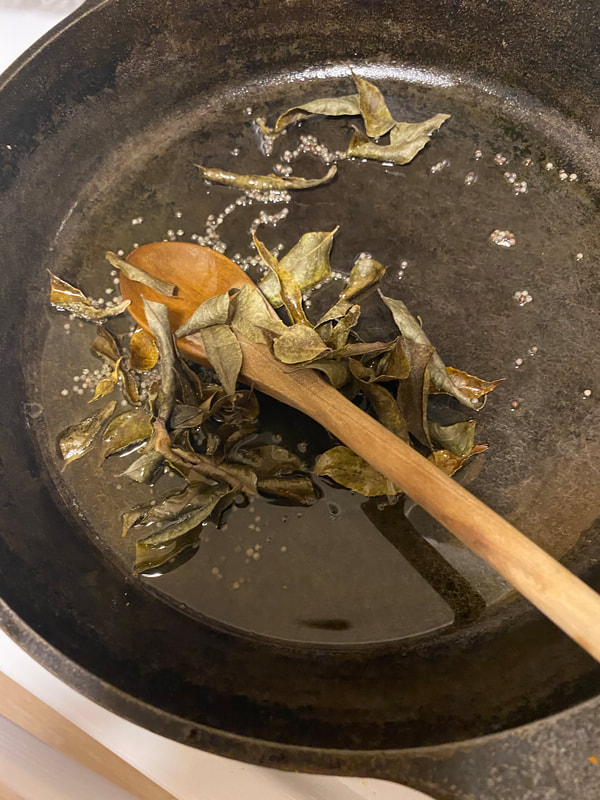
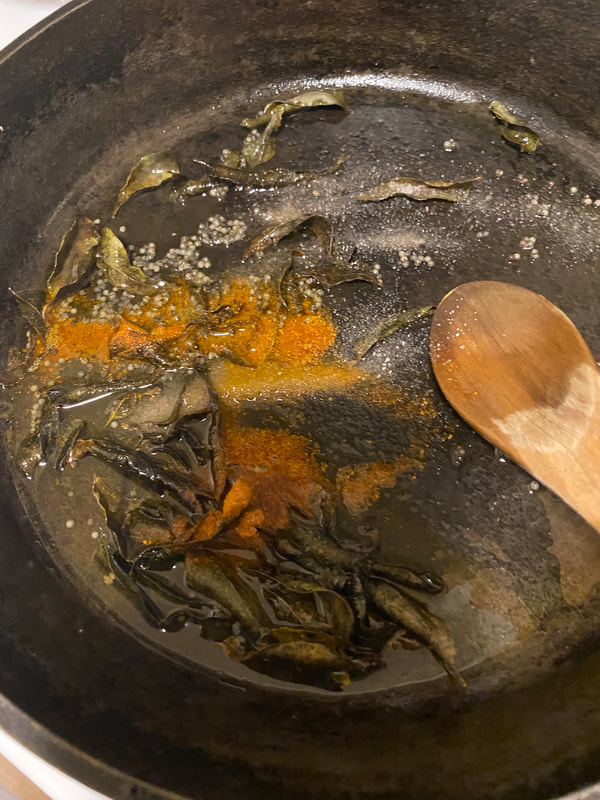
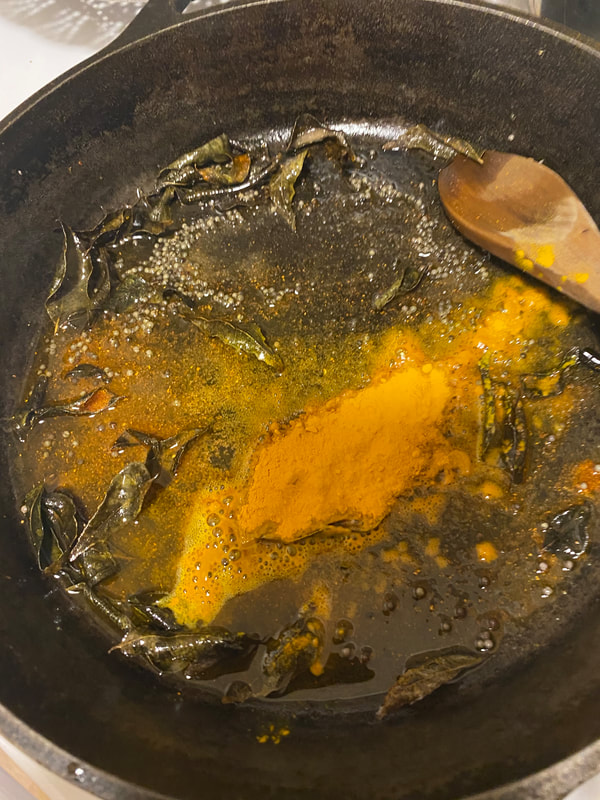
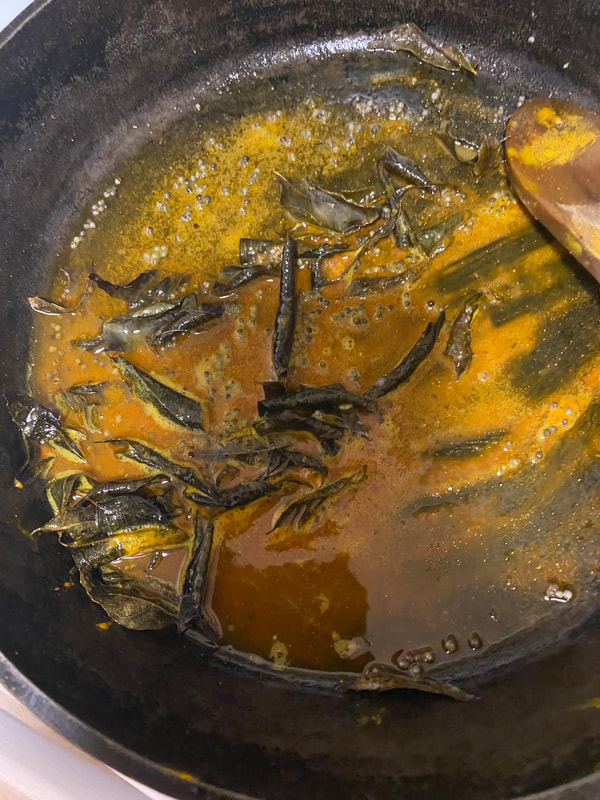
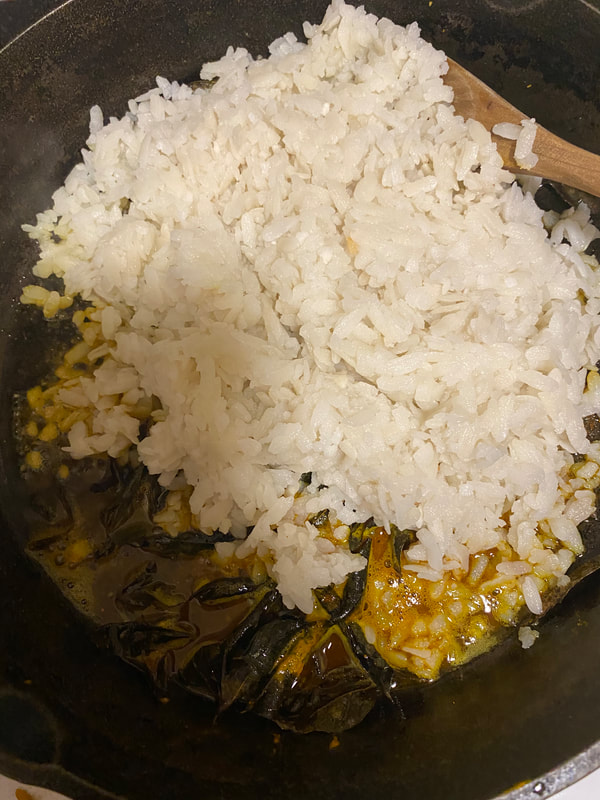
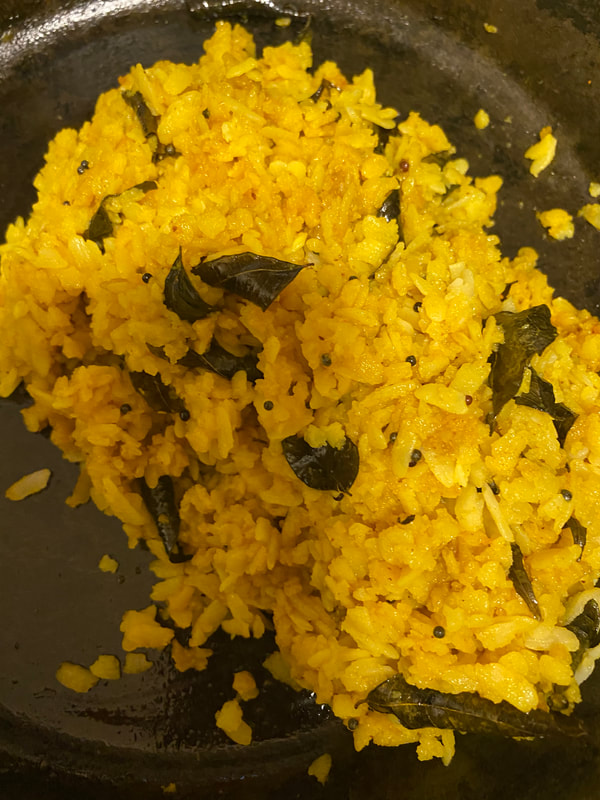
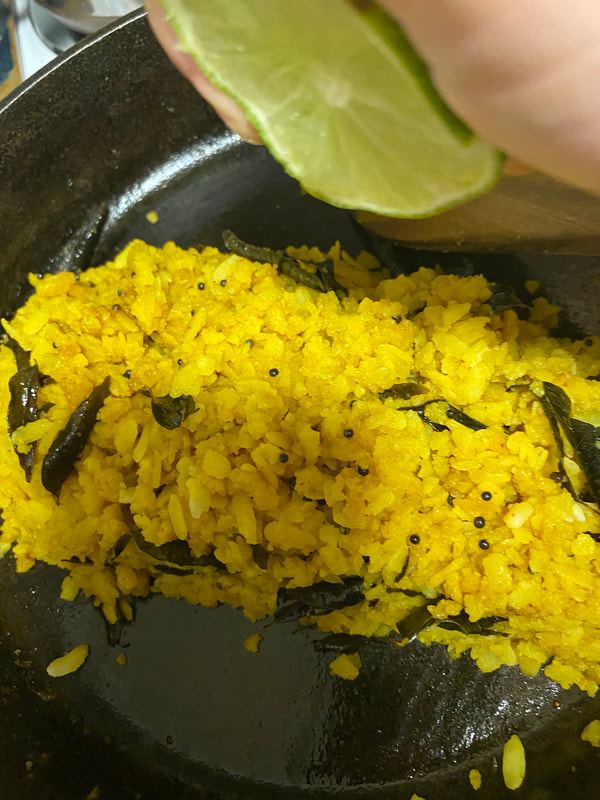
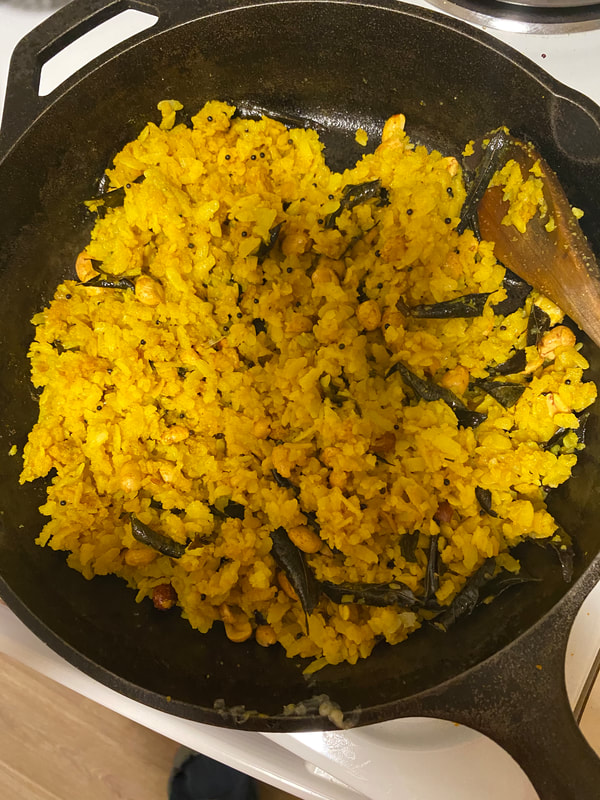
 RSS Feed
RSS Feed